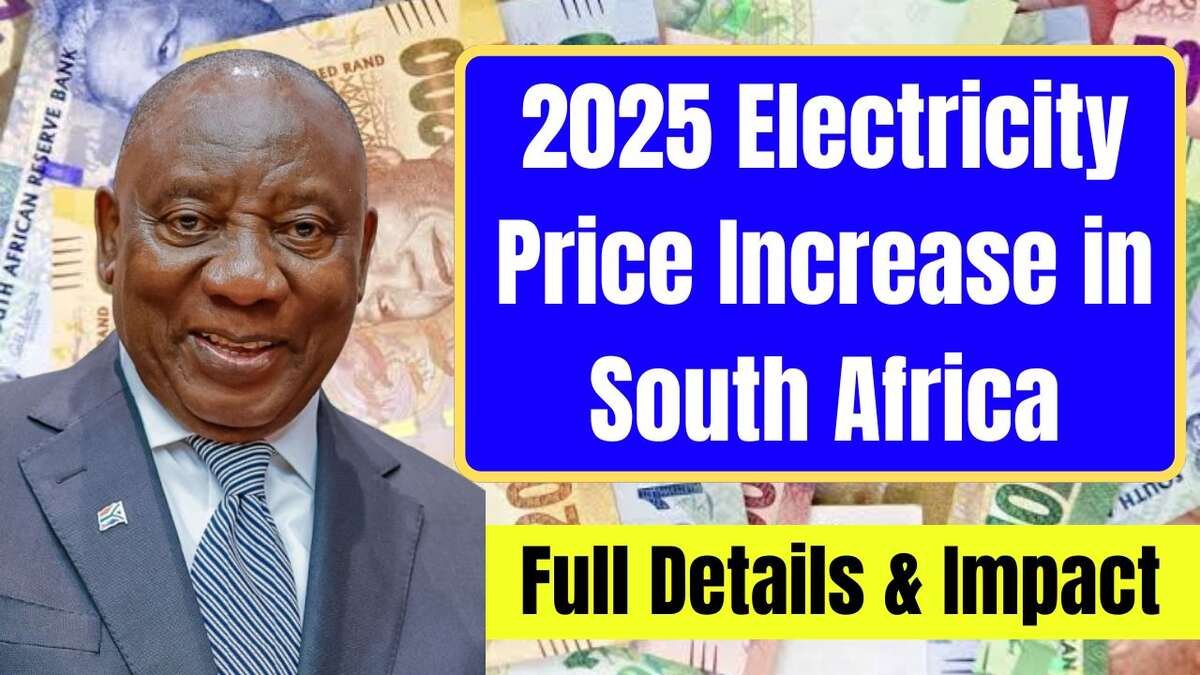One of the most severe escalations in the electricity prices in South Africa will happen in the year 2025. It only worsens all the other problems households and businesses already have. It comes amid the energy crisis that the whole nation faces. Thus its more likely going to worsen the economic situation that is already in the country. Such great price hikes will assuredly be symbolic to the consumers not only to straining their wallets financially but also to a lot of the issues troubling the power structure that they have in the nation.
Underlying Factors of the Price Hike
By far, the main motivation for the increased electricity pricing is the dire condition of Eskom, the South African state-owned utility. Contrary to its intended purpose, the utility has been battling serious and debilitating financial problems arising out of mismanagement, corruption, and the failure to maintain its infrastructure. The utility’s efforts to reinstate its burdened systems have, of course, been hindered by the phenomenal public debts the utility has accumulated.
Combined with this dubious financial soundness and an ultra-ancient and poorly maintained infrastructure, it will be power outages or load shedding. All these conditions gave birth to the so-called energy crisis in South Africa, which has eventually led Eskom to resort to pricey emergency imports that keep on inflating the energy generation cost. So, to keep afloat, Eskom has been hiking electricity tariffs, and the rise in 2025 will come as a result of each problem in the long course.
Effect on the Consumers and the Economy
While the higher costs in electricity will touch all South Africans, it will especially hurt low-income households. Adding the cost of electricity bills will make it more difficult for already beleaguered low-income families with increasing unemployment, rising inflation, and a cost of living that has increasingly been feeling like an anchor around their necks. Households will in turn end up dedicating less to food and healthcare because they will be spending more on utility expenses.
Small businesses and manufacturing industries will feel the pinch as a result of high electricity prices. Most businesses, especially in the sectors of manufacturing and agriculture, need good electric power at cheaper rates. However, the price hike is going to increase operation costs and necessitate additional charges for their products and services as well, while for some might scale down their operations. Thus, they may not be ideal for small businesses who may not be able to take the costs and eventually shut their doors or lay off employees.
Immediate governmental response
Though the South African government indeed realized the urgency for dealing with the electricity crisis, it has not always received positive reactions to what has been the government’s response. On one hand, the government has been bringing financial support to, and supervising a restructuring process within Eskom, ensuring it survival. Of course, such procedures are termed very slow and inadequate as critics might put it, when judged against the needs of the underlying cause.
The aforementioned government is also unwilling to actually take up reforms of that sort that could possibly open up competition within the electricity sector, which many authorities consider quite necessary in bringing prices down and increasing efficiency. Protests and demands by movements now for the 2025 price hike is prompt for an aggressive turnaround towards renewable resources and privatization of portions of the power sector for innovations and competition.
Also Read: SASSA Grant Payments For January 2025: New Terms To Qualify For Benefits
